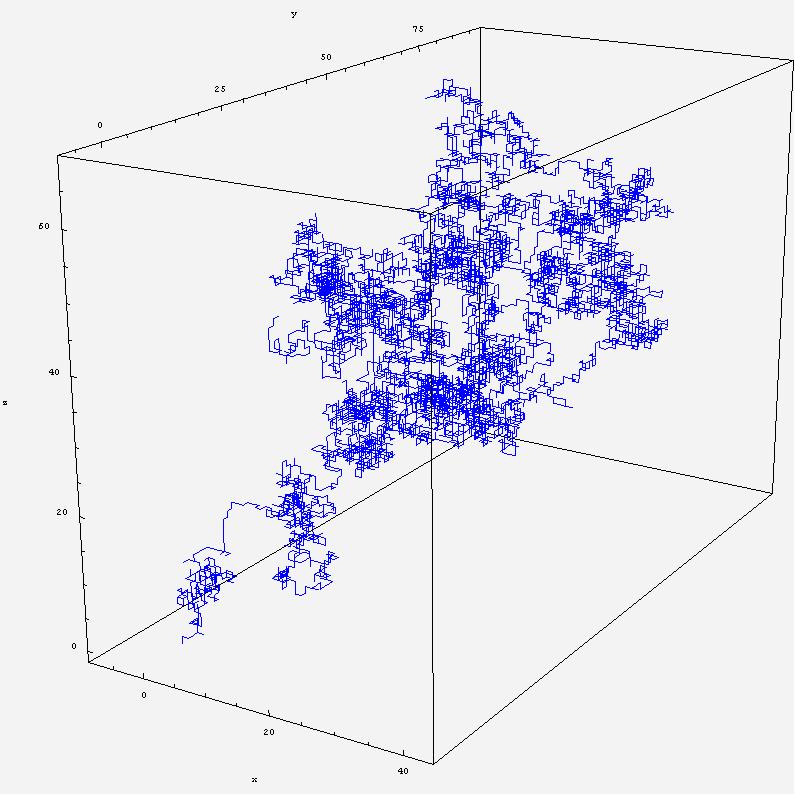Impossibility Of A Gambling System on:
[Wikipedia]
[Google]
[Amazon]
 The principle of the impossibility of a gambling system is a concept in
The principle of the impossibility of a gambling system is a concept in
probability
Probability is the branch of mathematics concerning numerical descriptions of how likely an Event (probability theory), event is to occur, or how likely it is that a proposition is true. The probability of an event is a number between 0 and ...
. It states that in a random sequence The concept of a random sequence is essential in probability theory and statistics. The concept generally relies on the notion of a sequence of random variables and many statistical discussions begin with the words "let ''X''1,...,''Xn'' be independ ...
, the methodical selection of subsequence
In mathematics, a subsequence of a given sequence is a sequence that can be derived from the given sequence by deleting some or no elements without changing the order of the remaining elements. For example, the sequence \langle A,B,D \rangle is a ...
s does not change the probability of specific elements. The first mathematical demonstration is attributed to Richard von Mises
Richard Edler von Mises (; 19 April 1883 – 14 July 1953) was an Austrian scientist and mathematician who worked on solid mechanics, fluid mechanics, aerodynamics, aeronautics, statistics and probability theory. He held the position of Gordo ...
(who used the term ''collective'' rather than sequence).
The principle states that no method for forming a subsequence of a random sequence The concept of a random sequence is essential in probability theory and statistics. The concept generally relies on the notion of a sequence of random variables and many statistical discussions begin with the words "let ''X''1,...,''Xn'' be independ ...
(the ''gambling system'') improves the odds for a specific event. For instance, a sequence of fair coin
In probability theory and statistics, a sequence of independent Bernoulli trials with probability 1/2 of success on each trial is metaphorically called a fair coin. One for which the probability is not 1/2 is called a biased or unfair coin. In the ...
tosses produces equal and independent 50/50 chances for heads and tails. A simple system of betting on heads every 3rd, 7th, or 21st toss, etc., does not change the odds of winning in the long run In economics, the long-run is a theoretical concept in which all markets are in equilibrium, and all prices and quantities have fully adjusted and are in equilibrium. The long-run contrasts with the short-run, in which there are some constraints an ...
. As a mathematical consequence of computability theory
Computability theory, also known as recursion theory, is a branch of mathematical logic, computer science, and the theory of computation that originated in the 1930s with the study of computable functions and Turing degrees. The field has since e ...
, more complicated betting strategies (such as a martingale) also cannot alter the odds in the long run.
Von Mises' mathematical demonstration defines an infinite sequence of zeros and ones as a random sequence The concept of a random sequence is essential in probability theory and statistics. The concept generally relies on the notion of a sequence of random variables and many statistical discussions begin with the words "let ''X''1,...,''Xn'' be independ ...
if it is not biased by having the ''frequency stability property''. With this property, the frequency of zeroes in the sequence stabilizes at 1/2, and every possible subsequence selected by any systematic method is likewise not biased.
The subsequence selection criterion is important, because although the sequence 0101010101... is not biased, selecting the odd positions results in 000000... which is not random. Von Mises did not fully define what constituted a "proper" selection rule for subsequences, but in 1940 Alonzo Church
Alonzo Church (June 14, 1903 – August 11, 1995) was an American mathematician, computer scientist, logician, philosopher, professor and editor who made major contributions to mathematical logic and the foundations of theoretical computer scienc ...
defined it as any recursive function which having read the first N elements of the sequence decides if it wants to select element number N+1. Church was a pioneer in the field of computable functions, and the definition he made relied on the Church Turing Thesis for computability.
In the mid 1960s, A. N. Kolmogorov and D. W. Loveland independently proposed a more permissive selection rule. In their view Church's recursive function definition was too restrictive in that it read the elements in order. Instead they proposed a rule based on a partially computable process which having read ''any'' N elements of the sequence, decides if it wants to select another element which has not been read yet.
The principle influenced modern concepts in randomness, e.g. the work by A. N. Kolmogorov in considering a finite sequence random (with respect to a class of computing systems) if any program that can generate the sequence is at least as long as the sequence itself.''Creating modern probability'' by Jan Von Plato 1998 pages 23-24
See also
*Gambler's ruin
The gambler's ruin is a concept in statistics. It is most commonly expressed as follows: A gambler playing a game with negative expected value will eventually go broke, regardless of their betting system.
The concept was initially stated: A persi ...
* History of randomness
* No free lunch theorem
In mathematical folklore, the "no free lunch" (NFL) theorem (sometimes pluralized) of David Wolpert and William Macready appears in the 1997 "No Free Lunch Theorems for Optimization".Wolpert, D.H., Macready, W.G. (1997),No Free Lunch Theorems f ...
References
{{Reflist Probability theory